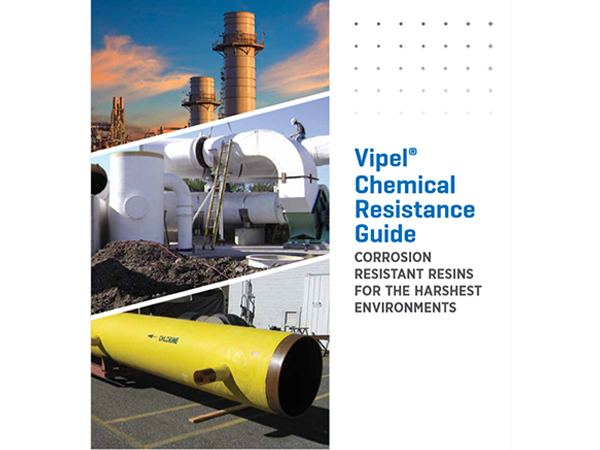
-
 Afrikaans
Afrikaans -
 Albanian
Albanian -
 Amharic
Amharic -
 Arabic
Arabic -
 Armenian
Armenian -
 Azerbaijani
Azerbaijani -
 Basque
Basque -
 Belarusian
Belarusian -
 Bengali
Bengali -
 Bosnian
Bosnian -
 Bulgarian
Bulgarian -
 Catalan
Catalan -
 Cebuano
Cebuano -
 China
China -
 China (Taiwan)
China (Taiwan) -
 Corsican
Corsican -
 Croatian
Croatian -
 Czech
Czech -
 Danish
Danish -
 Dutch
Dutch -
 English
English -
 Esperanto
Esperanto -
 Estonian
Estonian -
 Finnish
Finnish -
 French
French -
 Frisian
Frisian -
 Galician
Galician -
 Georgian
Georgian -
 German
German -
 Greek
Greek -
 Gujarati
Gujarati -
 Haitian Creole
Haitian Creole -
 hausa
hausa -
 hawaiian
hawaiian -
 Hebrew
Hebrew -
 Hindi
Hindi -
 Miao
Miao -
 Hungarian
Hungarian -
 Icelandic
Icelandic -
 igbo
igbo -
 Indonesian
Indonesian -
 irish
irish -
 Italian
Italian -
 Japanese
Japanese -
 Javanese
Javanese -
 Kannada
Kannada -
 kazakh
kazakh -
 Khmer
Khmer -
 Rwandese
Rwandese -
 Korean
Korean -
 Kurdish
Kurdish -
 Kyrgyz
Kyrgyz -
 Lao
Lao -
 Latin
Latin -
 Latvian
Latvian -
 Lithuanian
Lithuanian -
 Luxembourgish
Luxembourgish -
 Macedonian
Macedonian -
 Malgashi
Malgashi -
 Malay
Malay -
 Malayalam
Malayalam -
 Maltese
Maltese -
 Maori
Maori -
 Marathi
Marathi -
 Mongolian
Mongolian -
 Myanmar
Myanmar -
 Nepali
Nepali -
 Norwegian
Norwegian -
 Norwegian
Norwegian -
 Occitan
Occitan -
 Pashto
Pashto -
 Persian
Persian -
 Polish
Polish -
 Portuguese
Portuguese -
 Punjabi
Punjabi -
 Romanian
Romanian -
 Russian
Russian -
 Samoan
Samoan -
 Scottish Gaelic
Scottish Gaelic -
 Serbian
Serbian -
 Sesotho
Sesotho -
 Shona
Shona -
 Sindhi
Sindhi -
 Sinhala
Sinhala -
 Slovak
Slovak -
 Slovenian
Slovenian -
 Somali
Somali -
 Spanish
Spanish -
 Sundanese
Sundanese -
 Swahili
Swahili -
 Swedish
Swedish -
 Tagalog
Tagalog -
 Tajik
Tajik -
 Tamil
Tamil -
 Tatar
Tatar -
 Telugu
Telugu -
 Thai
Thai -
 Turkish
Turkish -
 Turkmen
Turkmen -
 Ukrainian
Ukrainian -
 Urdu
Urdu -
 Uighur
Uighur -
 Uzbek
Uzbek -
 Vietnamese
Vietnamese -
 Welsh
Welsh -
 Bantu
Bantu -
 Yiddish
Yiddish -
 Yoruba
Yoruba -
 Zulu
Zulu
frp insulation tank
The Advantages of FRP Insulation Tanks
In the world of modern engineering and construction, selecting the right materials and systems is crucial for performance, efficiency, and sustainability. One innovative solution that has gained traction in various industries is the use of Fiber Reinforced Plastic (FRP) insulation tanks. These specialized tanks are engineered to store liquids while providing superior thermal insulation, making them an essential choice for industries that require temperature-sensitive processes.
What is FRP?
FRP, or Fiber Reinforced Plastic, is a composite material consisting of a polymer matrix reinforced with fibers. The fibers can be made from various materials, including glass, carbon, or aramid, which contribute to the overall strength and durability of the composite. FRP offers excellent corrosion resistance, lightweight properties, and significant mechanical strength, making it ideal for various applications, especially in harsh environments.
The Need for Insulation
Many industrial processes require the storage of liquids that are either heated or cooled to maintain their properties. For instance, chemicals, oils, and even food products often need to be kept at specific temperatures to ensure safety and quality. Traditional storage tanks can be inefficient in maintaining these temperatures, leading to energy loss and increased operational costs. This is where FRP insulation tanks come into play.
Benefits of FRP Insulation Tanks
1. Thermal Efficiency FRP insulation tanks are designed to maintain the desired temperature of the stored liquids. The insulation properties of FRP significantly reduce heat transfer, helping to keep the contents warm or cool as needed. This thermal efficiency minimizes energy consumption, resulting in cost savings and a lower carbon footprint.
frp insulation tank

2. Corrosion Resistance One of the most significant advantages of FRP tanks is their resistance to corrosion. Traditional tanks made of metal can degrade over time, especially when exposed to harsh chemicals. FRP’s chemical resistance ensures longevity and reduces maintenance costs, making it a cost-effective option for industries like petrochemicals, pharmaceuticals, and food processing.
3. Lightweight and Strong Compared to traditional materials such as steel or concrete, FRP is notably lighter, which translates to lower transportation and installation costs. Despite its light weight, FRP offers excellent strength, allowing tanks to be manufactured in larger sizes without the structural limitations associated with heavier materials.
4. Customizability FRP insulation tanks can be customized to meet specific needs. They can be molded into various shapes and sizes and tailored to handle different pressures and temperatures. This versatility makes them suitable for a wide range of applications, from storing hazardous materials to managing water treatment processes.
5. Easy Maintenance The non-porous surface of FRP prevents the buildup of grime and deposits, making it easier to clean and maintain. This feature is crucial in industries where hygiene and compliance with safety standards are paramount.
6. Environmental Impact With growing concerns about environmental protection, the choice of materials in construction and industrial processes has never been more critical. FRP insulation tanks, being energy-efficient and long-lasting, contribute to reduced waste and resource consumption, aligning with sustainable practices.
Conclusion
The adoption of FRP insulation tanks represents a significant advancement in storage solutions for diverse industries. Their exceptional thermal efficiency, corrosion resistance, lightweight nature, and customizability imply that businesses can achieve better operational efficiency while also benefiting from lower maintenance costs and reduced environmental impact. As industries continue to evolve and embrace innovative materials, FRP insulation tanks are poised to play a pivotal role in shaping a more sustainable and efficient future. Whether for chemical storage, water treatment, or food processing, FRP insulation tanks stand out as a versatile and practical choice for today's industrial challenges.
Latest news
-
Exploring the Benefits of Top Hammer Drifter Rods for Enhanced Drilling PerformanceNewsJun.10,2025
-
High-Precision Fiberglass Winding Machine for GRP/FRP Pipe Production – Reliable & Efficient SolutionsNewsJun.10,2025
-
FRP Pipes & Fittings for Shipbuilding - Corrosion-Resistant & LightweightNewsJun.09,2025
-
Premium FRP Flooring Solutions Durable & Slip-ResistantNewsJun.09,2025
-
Premium Fiberglass Rectangular Tanks Durable & Lightweight SolutionNewsJun.09,2025
-
Tapered Drill String Design Guide Durable Performance & UsesNewsJun.09,2025









